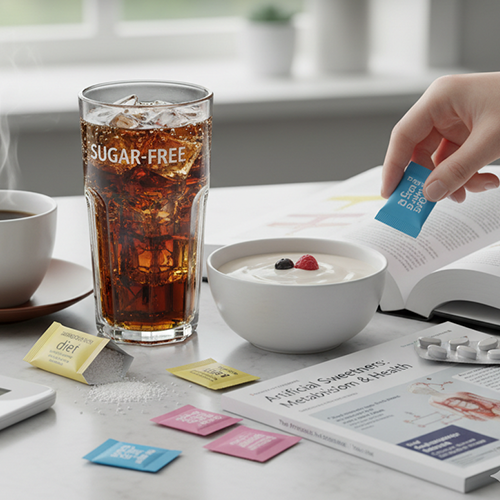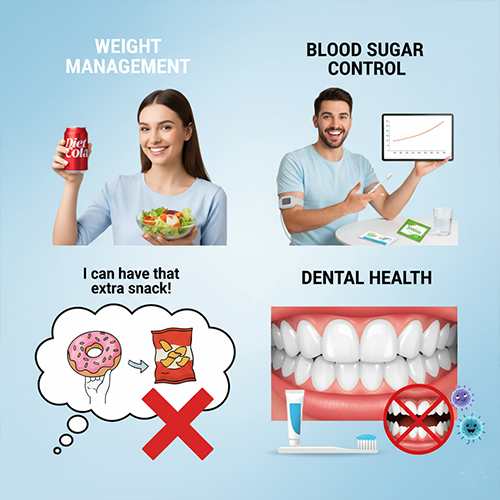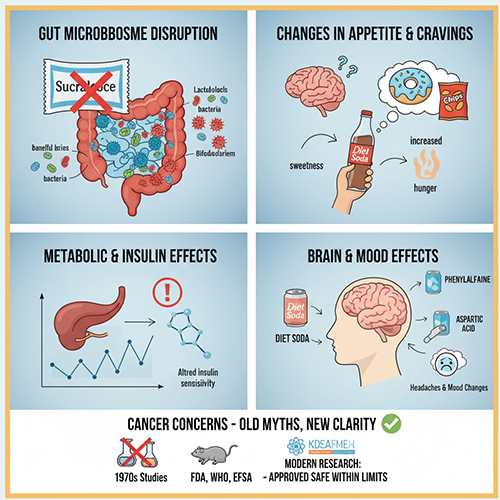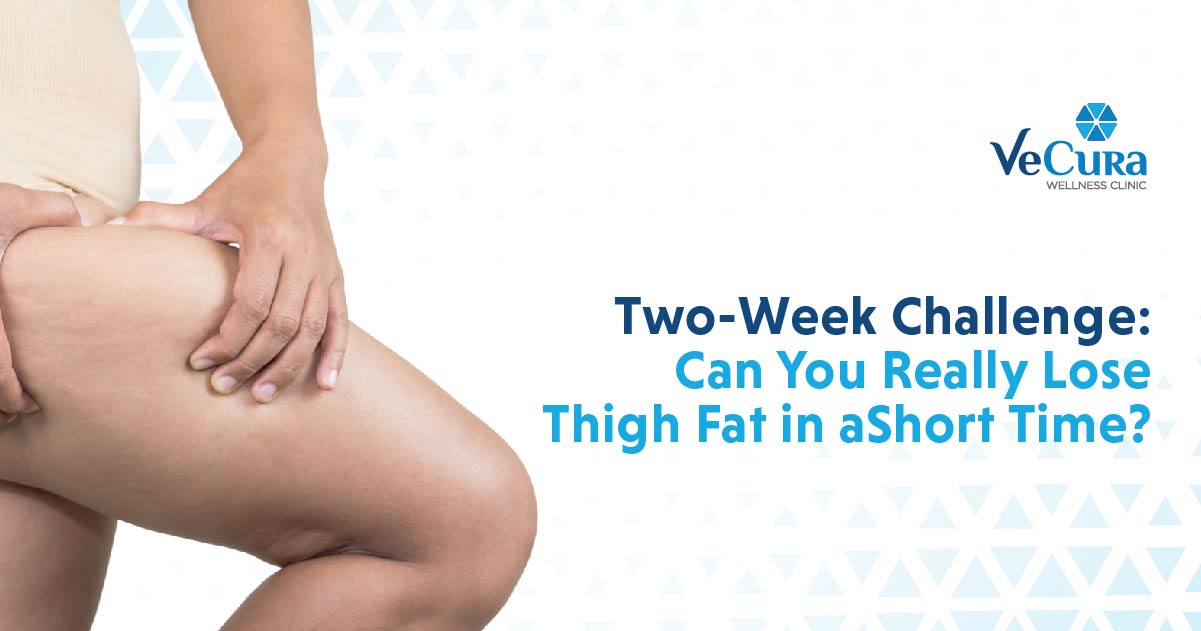Artificial sweeteners are everywhere — from your “sugar-free” cola to diet yogurt and even that packet you add to your morning coffee.
They promise all the sweetness without the calories — but are they really the guilt-free alternative they seem to be?
Let’s take a closer look at what artificial sweeteners do to your body, how they affect metabolism, and what science says about their long-term use.

What Are Artificial Sweeteners?
Artificial sweeteners (also called non-nutritive sweeteners or low-calorie sweeteners) are substances that taste hundreds of times sweeter than sugar but add little to no calories.
They’re used to:
- Help people cut down on sugar and calories
- Manage diabetes
- Reduce tooth decay
Common examples include aspartame, sucralose, saccharin, acesulfame-K, and natural options like stevia and monk fruit extract.
Types of Artificial Sweeteners You Commonly See
| Sweetener | Sweetness (vs Sugar) | Calories | Common Uses | Key Notes |
|---|---|---|---|---|
| Aspartame | 200× sweeter | 4 kcal/g (tiny amount used) | Diet sodas, desserts | Not for people with PKU (a rare genetic disorder). |
| Sucralose | 600× sweeter | 0 kcal | Baked goods, drinks | Can slightly affect gut bacteria at high doses. |
| Saccharin | 300–400× sweeter | 0 kcal | Tabletop sweeteners | Once linked to cancer in rats, but now proven safe. |
| Acesulfame-K | 200× sweeter | 0 kcal | Sugar-free snacks, soft drinks | Often combined with sucralose or aspartame. |
| Stevia | 200–300× sweeter | 0 kcal | Tea, coffee, protein shakes | Natural, plant-based, antioxidant properties. |
| Monk Fruit | 150–250× sweeter | 0 kcal | Desserts, smoothies | Natural and safe even for diabetics. |
Benefits of Artificial Sweeteners

1. Weight Management
Replacing sugar with artificial sweeteners can help reduce total calorie intake, which may support weight loss or maintenance.
However, this only works if you don’t compensate by eating more later (“It’s diet soda, so I can have that extra snack!”).
2. Blood Sugar Control
Sweeteners like stevia and sucralose have minimal impact on blood glucose and insulin, making them a helpful option for people with diabetes or insulin resistance.
3. Dental Health
Unlike sugar, artificial sweeteners don’t feed oral bacteria, meaning they help prevent cavities and tooth decay.
The Other Side: What We Know About Long-Term Effects

Artificial sweeteners are considered safe within the recommended limits, but some studies raise concerns about how they may affect metabolism and gut health when used long-term.
1. Gut Microbiome Disruption
Certain sweeteners — especially sucralose, saccharin, and acesulfame-K — can alter the gut microbiome, reducing beneficial bacteria like Lactobacillus and Bifidobacterium.
This may influence digestion, immunity, and glucose control over time.
2. Changes in Appetite and Cravings
Because artificial sweeteners provide sweetness without calories, your brain can get “confused.”
It expects energy after tasting something sweet — when it doesn’t arrive, it can trigger more hunger or sugar cravings, leading to overeating later.
3. Metabolic and Insulin Effects
Some small studies suggest that certain sweeteners may alter insulin sensitivity in some people, especially when consumed in large quantities.
However, this effect seems to vary between individuals and depends on the sweetener type.
4. Brain and Mood Effects
Aspartame breaks down into phenylalanine and aspartic acid, which can influence neurotransmitters.
A few people report headaches or mood changes after consuming large amounts, though studies don’t show consistent evidence of harm.
5. Cancer Concerns – Old Myths, New Clarity
Earlier studies in the 1970s linked saccharin to bladder cancer in rats.
But modern research and global health authorities (like the FDA, WHO, and EFSA) confirm that all approved sweeteners are safe within acceptable daily limits.
What Do Experts Say?
| Organization | Their Stand |
|---|---|
| FDA (U.S.) | Approves several artificial sweeteners as safe for human use. |
| WHO (2023) | Advises against long-term use for weight control — evidence of benefit is weak. |
| FSSAI (India) | Allows controlled use in food and beverages. |
Practical Tips from a Dietitian’s Perspective
| For Whom | Best Practice |
|---|---|
| Diabetics | Choose stevia or monk fruit; avoid overuse of artificial blends. |
| Weight Loss Clients | Can use short-term to cut sugar cravings, but aim to reduce dependence. |
| IBS / Gut Issues | Avoid saccharin and sucralose; go for natural options. |
| Children & Pregnancy | Limit artificial sweeteners; focus on real foods. |
| Healthy Adults | Enjoy occasionally; don’t rely on “sugar-free” as a health badge. |
The Bottom Line
Artificial sweeteners can be helpful tools, not miracle solutions. Used occasionally, they can make healthy eating easier and more enjoyable.
But relying on them daily may trick your taste buds, affect gut health, and keep your sugar cravings alive.
Nutrition Rx: Qualified dietitians emphasize that long-term wellness comes from retraining your palate to enjoy natural flavors and whole foods, not from depending on sugar substitutes. The healthiest approach? Gradually reduce both sugar and substitutes, focus on whole, nutrient-rich foods, and retrain your taste buds to enjoy natural flavors.










